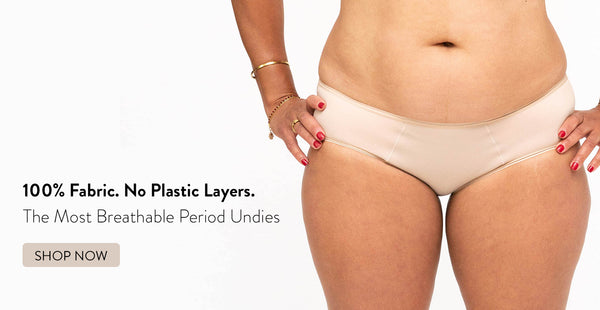Everything You Need to Know About Period Acne and How to Treat it
Premenstrual symptoms are a delight, aren’t they? As if mood swings, breast pain, exhaustion and migraines weren’t enough, period acne (typically along the jaw or under the chin) can be another charming sign that your period’s about to arrive.
What causes period acne?
As you might expect, hormones. Estrogen and progesterone levels drop just before a period but testosterone stays the same, and this relative imbalance makes your skin oilier. That feeds P. acnes, the bacterium that causes zits. It can affect anyone but if you’re already acne-prone, it’s likely to get worse before your period.
What treatments are available?
There are some treatments to address the hormonal nature of the problem, specifically:
Birth control pills
These increase estrogen, and so balance out testosterone in the blood, slowing down oil production. Ortho Tri-Cyclen, Estrosten, and Yaz can all be prescribed specifically for acne. The situation might get worse initially as your body adjusts, so give them a few months to work. Tell your doctor if you smoke, have high blood pressure, or have ever had breast cancer or blood clots, though, as it might not be the best choice for you.
Spironolactone
This is a blood pressure medication that can also be prescribed to reduce your body’s testosterone production and bring your hormones back into balance.
Other treatments aren’t specifically designed for hormonal acne, but may still help your skin, including:
Retinol cream or gel
A dermatologist can prescribe you Retin-A or similar topical treatments that are stronger than over-the-counter alternatives. These make the skin more vulnerable to burning, though, so you’ll need to use sunscreen, too.
Antibiotics
Tetracycline is often especially effective against acne, but as with all antibiotics, you might want to balance out its bacteria-killing properties with a good probiotic.
Accutane
This medication is often effective for cystic acne but has serious potential side effects, including liver damage and increased risk of suicide, so do your research before deciding whether to take it.
Can diet help?
For acne, the key is to cut back on foods that increase inflammation, as that seems to make it worse. These include sugar, dairy products, red meat, and refined carbohydrates like pasta and white rice.
Healthy fats like salmon and (everyone’s favorite) avocado reduce inflammation, as does zinc – the recommended dose is 40mg a day. Find it in pumpkin seeds, turkey, quinoa, lentils, cashews, or a daily supplement.
Taking in more vitamin A can also be helpful, but it’s better to seek out food sources as taking too much can be toxic. Good sources are liver and eggs, while sweet potato, carrots, and spinach encourage your body to produce more.
What else might work?
There are lots of non-medical treatments that claim to treat acne (whether around your period or not) but there isn’t always science to back them up. There’s some anecdotal evidence that tea tree oil helps some people, either dabbed on individual zits, or in cleansers or toners aimed at acne-prone skin, while masks and scrubs containing alpha hydroxy acids seem to unclog pores. Be careful if your skin is sensitive though, as some of these products might dry it out.
Is there anything else you can do?
While period acne isn’t just skin deep, being thorough about your skin hygiene could reduce your chances of a breakout, if only a little.
- Wash your face morning and night with a gentle face wash. (Look out for skincare products labeled “noncomedogenic”, which are designed to not block pores.)
- At the gym or yoga studio, cover any shared mats with a towel so your bare skin doesn’t touch them and shower soon after exercising, to rinse off the sweat.
- Try not to touch or rub your face throughout the day, as this can transfer bacteria.
- Clean your cell phone screen regularly, as it picks up all kinds of dirt from the environment… which you then press right onto your face.
- Stop smoking – it could save your life, and your skin.
- If all else fails, dermatologists have peels, lasers, and cortisone shots to make your skin look less blemished than it is. And the good news is, period acne should be less of a problem as you get older. The bad news is, menopause acne is real. But let’s not think about that right now.

